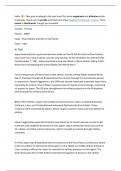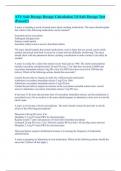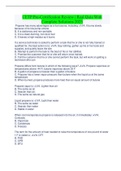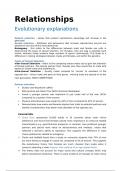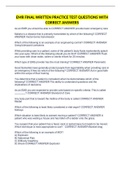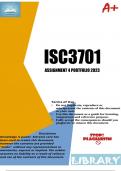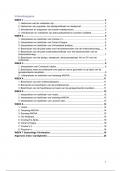materials, check out my profile and flashcard shop Maggie's Flashcards - Payhip. From
notes to flashcards, I've got you covered!
Course : History
Theme : WWII
Topic : Pearl Harbor and War in the Pacific
Years : 1941
In Text
Japan believed that a quick and decisive strike on the US Pacific Fleet at Pearl Harbor,
also known as a shock attack, was the only solution to the inevitable war with the USA.
On December 7, 1941, Japan launched a surprise attack on Pearl Harbor, killing 2,403
Americans and drawing the United States into World War II.
The consequences of Pearl Harbor were severe, and the United States entered World
War II. President Franklin D. Roosevelt led the country through this tumultuous period.
In response to Japan's aggression, the USA took several measures to prevent Japan from
expanding its empire. One of these measures was to impose an oil embargo, restricting
oil exports to Japan. The US also strengthened its military presence in the Philippines
and increased its military aid to China.
Before Pearl Harbor, Japan had invaded several colonies in Asia, including Indochine
(Vietnam, Laos, and Cambodia) and Indonesia (Netherlands East Indies). These
invasions were motivated by Japan's desire to gain access to resources and expand its
empire.
Japan's aggressive expansionist policy was driven by its need to secure access to raw
materials and establish dominance in the region. Japan lacked key resources such as
oil, rubber, and other natural resources, which it sought to acquire through military
conquest.
In 1919, Japan was dissatisfied with the outcome of the Paris Peace Conference, where
it did not achieve its desired territorial gains. In the 1920s and 1930s, Britain limited its
navy, making it difficult for Japan to maintain its military presence in the region. The
Asian Exclusion Act of 1924 further restricted immigration of Asians to the United

